
्य्ने्वैष ्वृणुतनेतने् लभ्यः It is attained by him alone whom It chooses (Kathopanishad. 1.2:23)
Frequent visits to Sri Ramakrishna made an affluent devotee dispassionate towards worldly life. One day he told Sri Ramakrishna, “Sir, I am thinking now of giving up my work. One who is involved in activity cannot accomplish anything. (Pointing to his companion) I am training him to do my work. After I resign, he will relieve me. Work has become intolerable.”
Sri Ramakrishna appreciated his attitude but had his reservations. He said, “Yes, work is very troublesome. It is now good for you to meditate on God for a few days in solitude. No doubt you say that you would like to give up your work. Captain said the same thing. Worldly people talk that way; but they don’t succeed in carrying out their intention.”1
This gentleman was Prankrishna Mukhopadhyay. He belonged to an aristocratic family — the Mukhopadhyayas of Janai in Hoogly district — and lived at Shyampukur, an area in the northern part of Calcutta [now Kolkata]. He held a high post in an English business firm. Since he had no offspring by his first wife, with her permission he married a second time. By his second wife he had a son.2 Because he was rather stout, Sri Ramakrishna addressed him endearingly as ‘the fat brahmin’.3
This story is from the {{IssueName}} edition of {{MagazineName}}.
Start your 7-day Magzter GOLD free trial to access thousands of curated premium stories, and 9,000+ magazines and newspapers.
Already a subscriber ? Sign In
This story is from the {{IssueName}} edition of {{MagazineName}}.
Start your 7-day Magzter GOLD free trial to access thousands of curated premium stories, and 9,000+ magazines and newspapers.
Already a subscriber? Sign In

Panchakroshi Parikrama of Varanasi
At the snow-capped Kailas, the Divine Lord Shiva was seated with Mother Parvati.
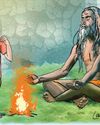
Gadai and the Monks
A fictional narrative based on incidents from the childhood of Sri Ramakrishna.
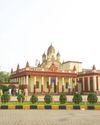
Chintayo momo maanosho Hori...
Sri Ramakrishna loved songs. There probably was no normal day when he did not sing some songs.
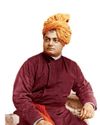
The Vedanta Vaccine
The world is still struggling under the impact of the pandemic due to Covid-19 for the last three years.
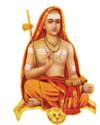
Chandrakirti's Chariot: Self in Madhyamaka Buddhism and Advaita Vedanta
The goal in Advaita Vedanta is the cessation of suffering and the attainment of true fulfillment. Suffering, according to this school, is due to ignorance of the true nature of the self and consequent erroneous identification with the body-mind.
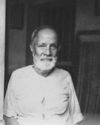
Reminiscences of Sargachhi
Question: यद्यदाचरतत श्रेष्ठसतत्तदरेवरेतरो जनिः। ‘Whatever a superior person does, others do the same thing!’ (Gita 3:21) – What does this statement mean?
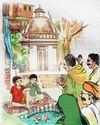
THE AUTUMN FESTIVAL
A fictional narrative based on incidents from the childhood of Sri Ramakrishna.
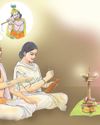
Bards of Guruvayur: Vilwamangalam II
Saints of India
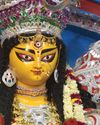
In the Universal Mother’s Divine Playground
Swami Vivekananda never taught the worship of Mother Kali. In a letter to Mary Hale he writes, “Kali worship is not a necessary step in any religion.
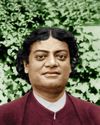
Swami Vivekananda: A Sportsman Par Excellence
In various books and articles, Swami Vivekananda has been called a spiritual leader, a prophet, a patriot, a social reformer, a philosopher, a yogi, a writer, an orator, an educationist, a musician, and so on.